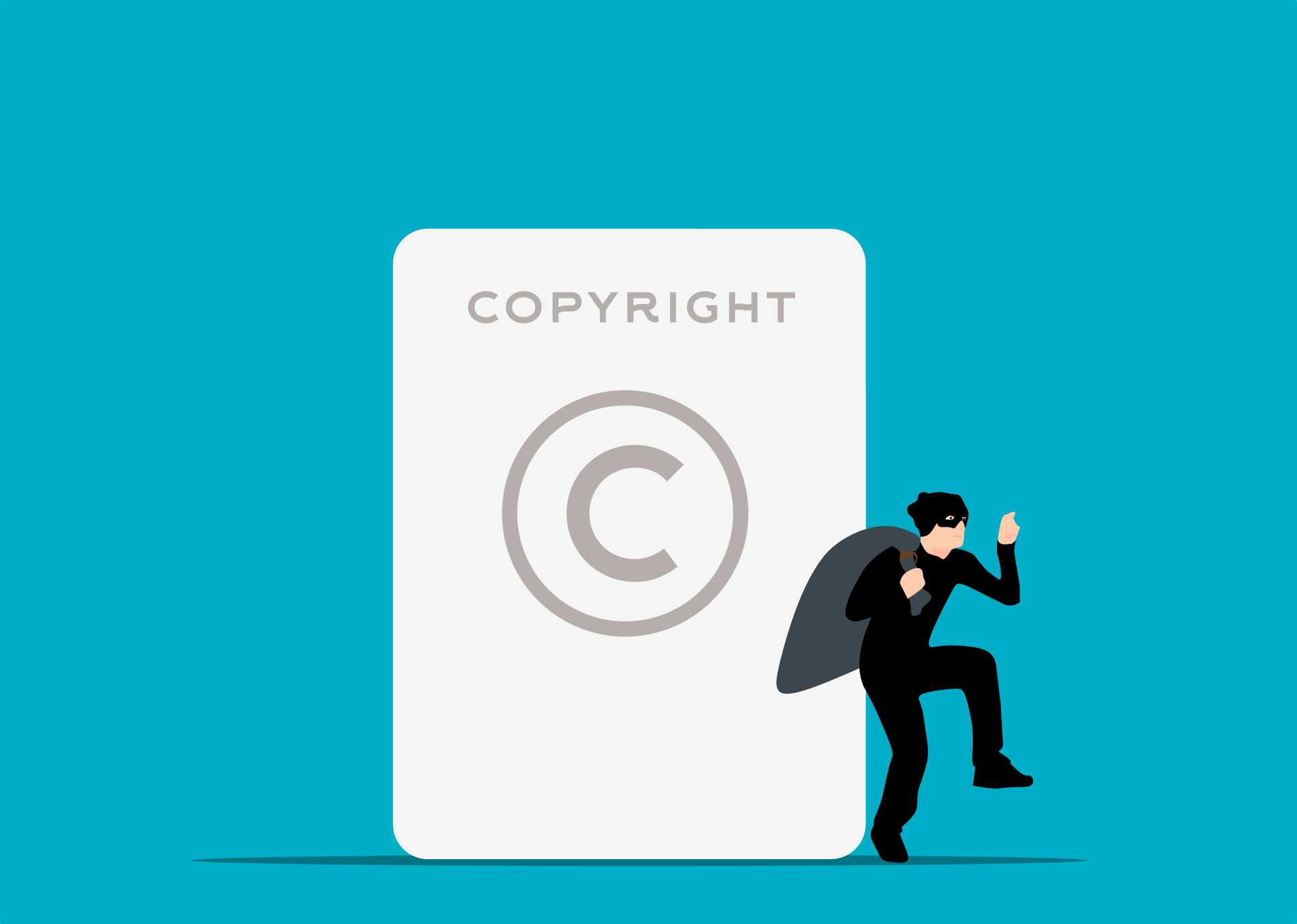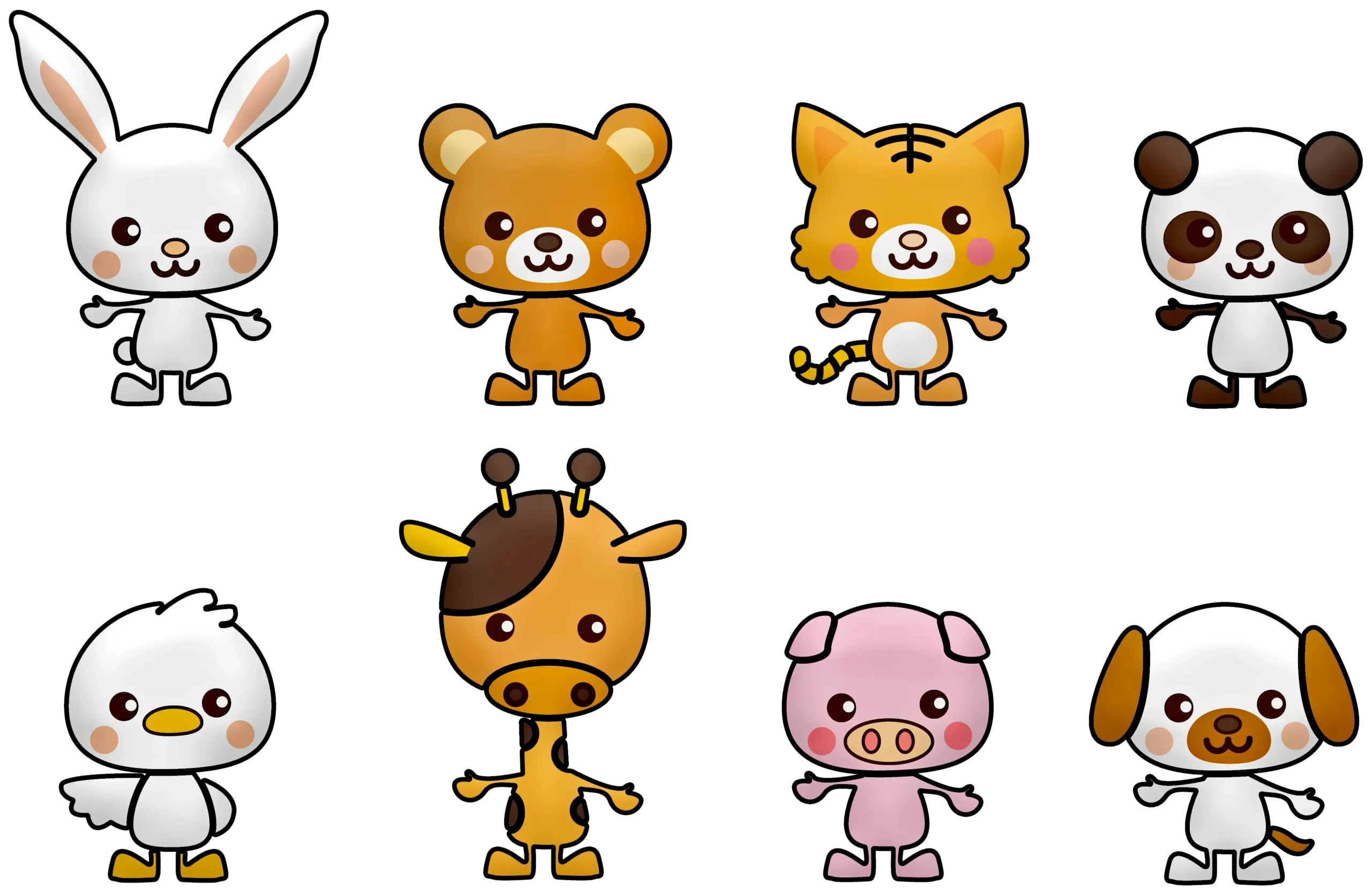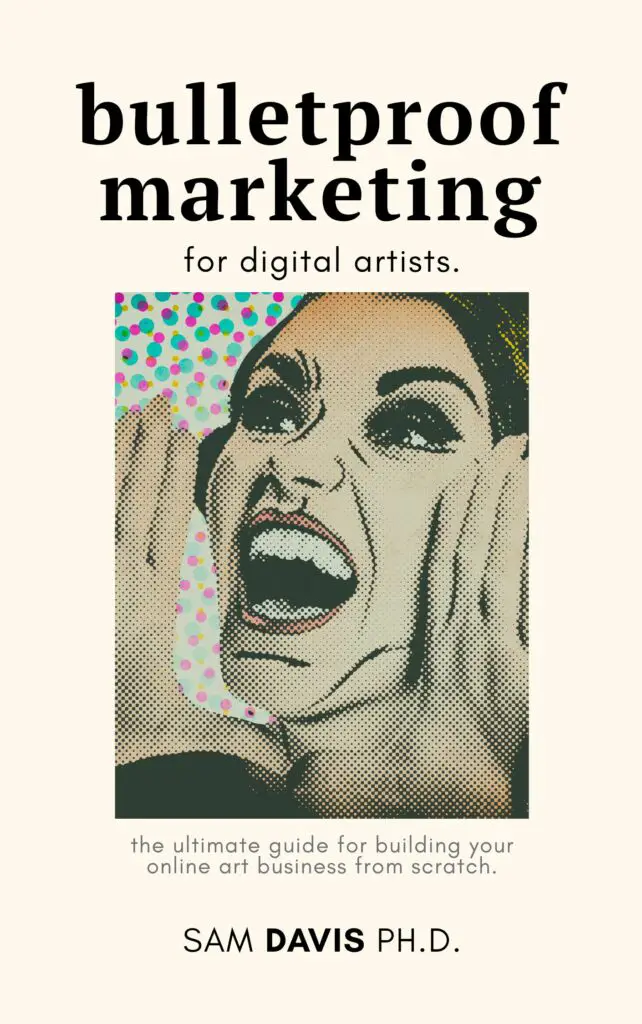If you're an artist, chances are that some of what you draw is considered fan art. The natural thing to wonder is whether or not you can actually sell fan art to your customers. I am not a copyright lawyer, and this isn't necessarily legal advice, but here are some good tips and tricks to navigate the tricky world of intellectual property rights, trademark law, and copyright infringement.
The simple fact is that you cannot sell your fan art without violating copyright law. It's someone else's intellectual property – and very often, those other people have a lot more money than you do. Penalties for copyright infringement are steep, so just stay away from it altogether.
Now that the big message is out of the way, let's talk more in detail about US copyright, artistic works, and your small sticker business.

What is intellectual property?
Intellectual property includes property which involves creation in the mind – poems, books, essays, art, videos, etc. Literary and artistic documents incorporated by merchants include inventions and artworks in commerce. Intellectual property management enables the rightful owners to gain full benefit from inventions or artistry. Intellectual property is the concept of what you create – copyright and trademark are two types of protection that US law (and most international laws) offer you. Because we're based in the US, we're going to discuss US-based copyright and trademark laws.
If you really want to deep dive into the topic, I recommend the book “Guide to Intellectual Property” from the Economist. This is especially true for artists and writers, where the world of intellectual property can get confusing, fast.
How do I get copyright?
Copyright is an innate right that begins the moment that you create an artwork. You do not need to register for a copyright, and it expires 70 years after the death of the author. If the work was a “work for hire”, then copyright persists for 95-120 years, depending on circumstance.
There used to be an anecdote going around that if you dated and mailed a copy of your piece to yourself, then you would have copyright. The idea is that, in a sealed envelope with a date, you have a registered record of when a piece was created.
With the internet now, most computers and cloud services have excellent version tracking information, so you can easily ID when an artwork was created. Some folks use social media like Instagram to keep track of their art, too.
This also applies to other artists, whether they realize it or not. A great guide to copyright for visual artists (like you and me) can be found right here!
What's a trademark and how do I get that?
A trademark is meant for a distinctive feature of your business: like the Nike swoosh or the “Just Do It” slogan, or “Nike” itself as a business name. Trademarks are not traditionally meant for individual works of art, but instead, broader concepts. Trademarks are restricted to certain categories, and the cost for the trademark increases for every category (e.g., clothing, decals) that you apply for.

The Trademarking Process
Trademarks cost money, lawyers, and time. You apply to register a trademark and it costs a couple hundred of dollars, depending on how many categories you're registering in. It then goes through a review process by the trademark office, and is also posted publicly. During the public stage, anyone is allowed to file a “Letter of Protest” for a small fee, also known as an LOP. A LOP may get your trademark application denied if your proposed trademark infringes on someone else's ideas or copyrighted materials.
If your trademark application is successful, it becomes a registered trademark, and you are liable for all trademark protection. If you don't protect your trademark religiously from trademark infringement, the trademark registry may opt to let your trademark expire.
Should I get a trademark?
In most cases, probably not.
Being a trademark owner is expensive. They're meant for businesses with a lot of things that small businesses don't have: lawyers, insurance, and working capital. Registering trademarks is really only valuable if they've got a high potential of someone else trying to use them, if someone else doing so would impact your business, or if you've got an opportunity to license other artists for commercial use of that trademark.
What's fair use and how does it impact copyright infringement?

In school, you may have seen your teachers copying entire documents or books meant for commercial sale and handing them out to class. What a testament to the funding of education in this country. Budgetary concerns aside, this type of copying constitutes “fair use” –
The statute provides that fair use of a work “for purposes such as criticism, comment, news reporting, teaching (including multiple copies for classroom use, scholarship, or research)” is not an infringement of copyright.
In other words, it is the only legal exception to copyright infringement. And it comes with a LOT of restrictions. In general, fair use will NOT protect your infringing sticker ideas from the hammer of copyright law.
The best written resource we can point to about fair use actually comes straight from classes for people getting media degrees. If you're really willing to open a text book, here's a great resource book that will likely serve you for decades to come.
Can I use Disney stuff if I modify it?
You can't just copy “Baby Yoda” (yes I know it's Grogu), call it fair use, and call it a day. The purpose of your piece must be majority falling under one of those categories above – criticism, teaching, news reporting, etc. None of those categories are really conducive to selling artwork. Most of them are really just educational purposes.
Disney is notorious for two things: first off, they've been so influential in the US that they've actually managed to get copyright law changed for their benefit. And second – they're the number one cause of takedowns on platforms like Etsy and Amazon.
Keep in mind that companies won't stop pursuing you under copyright law if you're shouting fair use. There will be a trial. It will be expensive. In most cases, especially when dealing with copyrighted material, it's better to get written permission, or pay a licensing fee, to make sure that you're able to legally sell whatever you've made.
What about the 30% rule?
You'll see a common internet myth that as long as you change an idea by 30%, it becomes protected by copyright for you. This is false. If you change 30% of Grogu's body but it's still identifiable as Grogu, then it's still copyrighted material belonging to Disney, and they've got great lawyers.
This is because the individual design doesn't matter quite as much as the intellectual property. Their copyright is for the CONCEPT of Grogu, not a particular drawing. And copyright protects that concept from infringing activity.
What is public domain?
After a copyright owner's death, plus a little bit of time depending on the year the artwork was created, copyright protection expires and that work moves into the public domain. Public domain material is material that is free to use, no strings attached. Modify it, burn it, make t shirts of it – it really doesn't matter. It's copyright free.
However, there are exceptions to every rule, and copyright law has not been stagnant. You'll need to do your research to make sure that you have the legal rights to sell stickers of something that is potentially in the public domain. It's much easier to double check before you start breaking copyright laws.
So what I make will go into the public domain?
Eventually, yes. You can also release whatever you make under a particular license by providing written notice with the work. Many great artists have released their works into Creative Commons licensing, or even into public domain.
Their release of copyrighted material allows other artists to riff off of their art while avoiding copyright infringement. If you're interested in doing this with your copyrighted material, give it some research. You would still be able to generate sticker ideas off of your own work – but you would also allow other artists to build on what you've done.
A final thought
When in doubt, just don't. Copyright infringement is no joke, with the offending party liable to legal action and statutory damages. Big companies have deep pockets. So, keep your fan art for personal use only.
We'll talk soon about protecting sticker ideas from other artists – the steps you can take, and what copyright owners can do to protect their own property.

